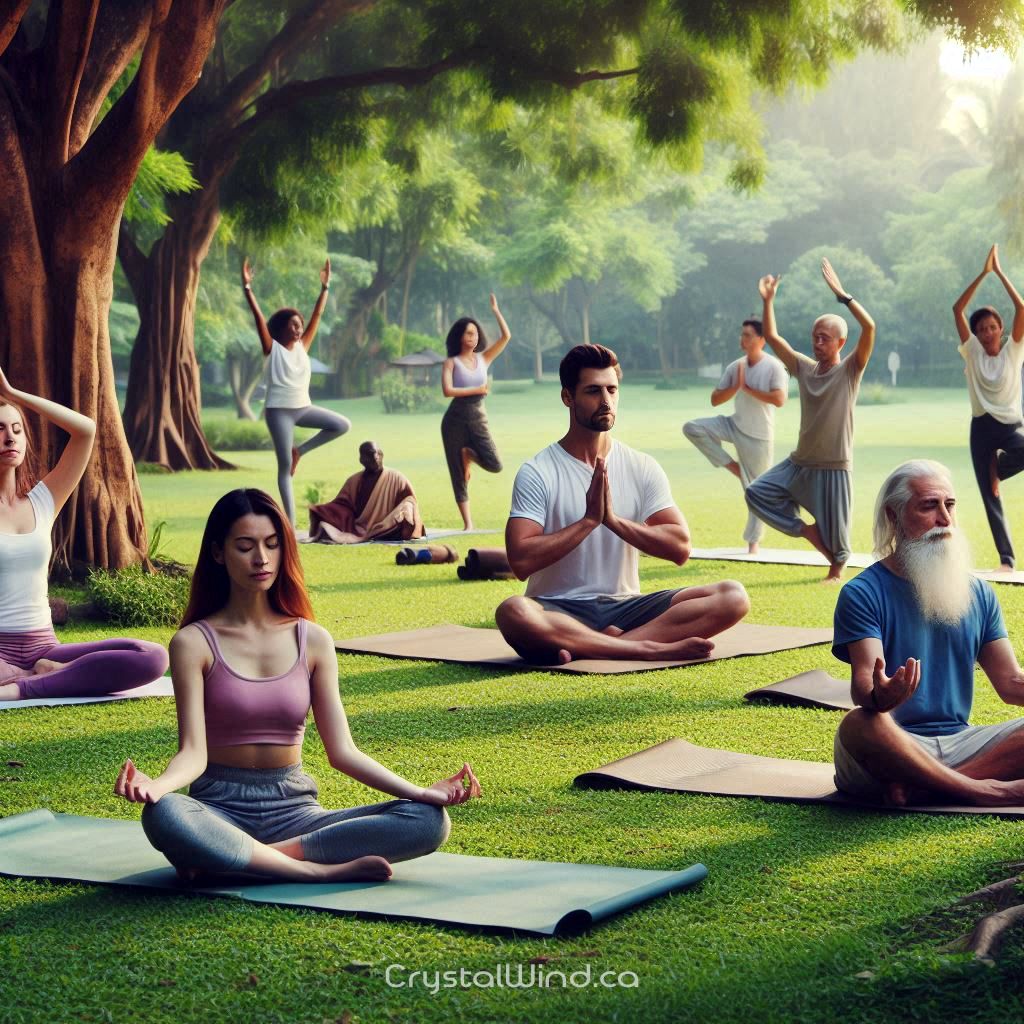
The Different Types of Meditation & Which Is Right for You
Meditation has grown from an ancient spiritual practice into a mainstream tool for improving mental health, clarity, and well-being in the modern world. With numerous styles, each offering unique benefits, choosing the right type of meditation can be overwhelming. Here, we'll explore various forms of meditation, their benefits, and how to match them with essential oils and herbs for an enhanced experience.
1. Mindfulness Meditation
What It Is: Mindfulness is the practice of being fully present and engaged in the moment, aware of your thoughts and sensations without judgment.
How to Practice:
- Sit or lie down in a comfortable position.
- Focus on your breath or on bodily sensations.
- Acknowledge thoughts as they arise but let them pass without attachment.
Benefits:
- Reduces stress
- Enhances self-awareness
- Improves concentration and cognitive skills
Complementary Essential Oils and Herbs:
- Lavender for calmness and stress relief.
- Frankincense to deepen the meditative state and for grounding.
- Herb: Chamomile tea can be sipped before meditating for relaxation.
2. Transcendental Meditation (TM)
What It Is: A technique for avoiding distracting thoughts and promoting a state of relaxed awareness, often using a mantra.
How to Practice:
- Sit comfortably with eyes closed.
- Silently repeat a personally assigned mantra in a specific way.
Benefits:
- Decreases anxiety
- Increases creativity
- Enhances brain function
Complementary Essential Oils and Herbs:
- Sandalwood for its deep, woody aroma that aids in focusing the mind.
- Patchouli helps in grounding and stabilizing the mind.
- Herb: Brahmi (Bacopa monnieri) can be used to enhance brain function and calmness.
3. Guided Visualization or Imagery
What It Is: Involves forming mental images of places or situations you find relaxing, often guided by a teacher or an audio recording.
How to Practice:
- Find a quiet space.
- Listen to a guided meditation or visualize on your own a peaceful scene or journey.
Benefits:
- Reduces stress and anxiety
- Promotes relaxation
- Can improve mood and motivation
Complementary Essential Oils and Herbs:
- Eucalyptus for clarity and opening nasal passages which can enhance visualization.
- Peppermint for mental alertness.
- Herb: Lemon balm for its soothing effects.
4. Loving-Kindness Meditation (Metta)
What It Is: This practice involves mentally sending goodwill, kindness, and warmth towards others by silently repeating a series of mantras.
How to Practice:
- Begin by directing loving-kindness towards yourself, then progressively towards loved ones, acquaintances, and all beings.
Benefits:
- Increases positive emotions
- Reduces negative emotions towards oneself and others
- Enhances empathy and emotional processing
Complementary Essential Oils and Herbs:
- Rose oil for heart-opening qualities.
- Ylang Ylang to foster feelings of peace and love.
- Herb: Passionflower, known for its calming properties and emotional balance.
5. Body Scan or Progressive Relaxation
What It Is: Encourages people to scan their bodies for tension and release it.
How to Practice:
- Lie down or sit comfortably.
- Focus on one part of the body at a time, tense and then relax each muscle group.
Benefits:
- Promotes physical relaxation
- Reduces chronic pain
- Increases body awareness
Complementary Essential Oils and Herbs:
- Cypress for circulation and muscle relaxation.
- Marjoram for soothing muscles.
- Herb: Valerian root for deep relaxation and sleep induction.
6. Zen Meditation (Zazen)
What It Is: A form of meditation that involves specific postures and steps, aimed at aiding deeper understanding or enlightenment.
How to Practice:
- Sit in a prescribed posture, often cross-legged, with a straight back.
- Focus on breath or engage in just sitting (shikantaza).
Benefits:
- Enhances discipline
- Deepens concentration
- Encourages a state of flow
Complementary Essential Oils and Herbs:
- Cedarwood for grounding and steadiness.
- Myrrh to enhance spiritual awareness.
- Herb: Ginkgo Biloba for improved concentration.
7. Movement Meditation
What It Is: An active form where movement guides you into a meditative state, examples include Tai Chi, Qigong, or walking meditation.
How to Practice:
- Engage in slow, deliberate movements or walk rhythmically, focusing on the movement itself.
Benefits:
- Improves physical balance and flexibility
- Combines physical activity with mental focus
- Good for those who find stillness challenging
Complementary Essential Oils and Herbs:
- Bergamot for uplifting the spirit during movement.
- Ginger for warming and energizing.
- Herb: Turmeric can be used for its anti-inflammatory properties, beneficial before or after physical activity.
Choosing the Right Meditation for You
The choice of meditation depends on your goals:
- For Stress Relief: Try Mindfulness or Transcendental Meditation with lavender or chamomile.
- For Emotional Healing: Loving-Kindness Meditation with rose oil could be ideal.
- For Physical Relaxation: Body Scan paired with marjoram or cypress.
- For Spiritual Growth: Zen or Transcendental Meditation alongside myrrh or sandalwood.
Conclusion
Meditation is a personal journey, and what works for one might not work for another. Experiment with these forms, notice how each practice affects your mind and body, and perhaps blend them with the recommended essential oils and herbs to deepen your practice. Remember, consistency is key in meditation; the right type for you is the one you can commit to regularly. Whether it's through the calming scent of lavender in mindfulness or the grounding aroma of cedarwood in Zazen, these natural complements can enhance your meditation, making the experience not only more enjoyable but also more profound.
The original article is copyrighted by the author listed above. Posted on AromaWorx.ca ©2024. All rights reserved. Reproduction of this content is prohibited without written permission. The title of the article was created by AromaWorx.ca.
If you appreciate the information provided,
please help keep this website running. Blessings!
© 2008-2025 aromaworx.ca. All rights reserved.

